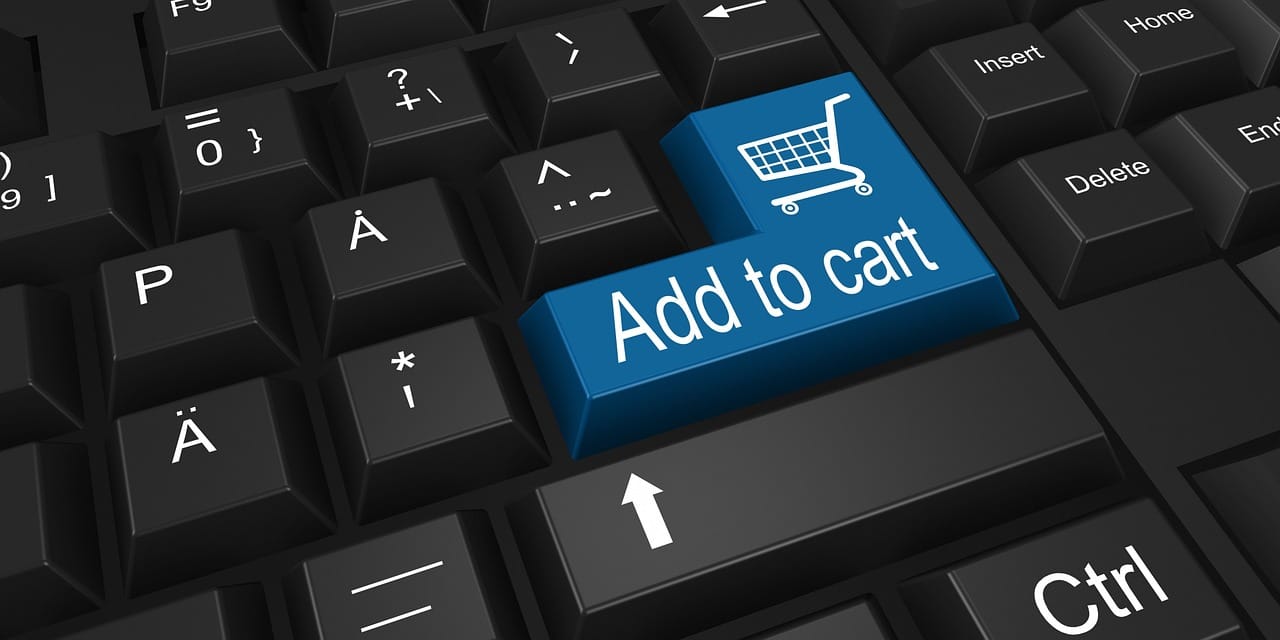The Digital Shelf: How E-Commerce Business is Reshaping the Fast Moving Consumer Goods Industry(FMCGs)

How FMCGs are evolving in the digital era
In the dynamic world of consumer goods, the Fast-Moving Consumer Goods (FMCG) industry has long been a cornerstone of daily life. From the humble toothbrush to the delectable snack, FMCG products permeate our homes and touch our lives in countless ways. However, the landscape of this industry is undergoing a profound transformation, driven by the relentless surge of digitalization and the ever-evolving demands of consumers. We delve into the compelling narrative of how FMCGs are adapting and thriving in the digital era, embracing technology to enhance their reach, engagement, and overall consumer experience.
Types of E-Commerce Businesses and their impact on FMCGs
When it comes to e-commerce, there are primarily three types of businesses, impacting the Fast Moving Consumer Goods (FMCG) industry in multiple ways.
- Business-to-business (B2B) models, where online platforms like Shopify, a renowned e-commerce platform, act as effective dropshipping suppliers among businesses. This has expeditiously influenced the FMCG landscape, making buying and selling products in bulk hassle-free and streamlining their supply chain.
- Business-to-consumer (B2C) stores, such as Amazon, where a seller offers their e-commerce store to consumers. This business model has revolutionized the trade scenario, providing perks like easy global reach and 24/7 access. It usually functions like dropshipping, where a customer orders and the manufacturer directly ships the product.
- Consumer-to-consumer (C2C) platforms, like eBay, cater to e-commerce transactions between consumers. Often overshadowed by the B2B and B2C models, C2C has significantly broadened the second-hand and handmade FMCG market.
These diverse e-commerce store models are progressively reshaping the FMCG domain. They underline the shift from conventional to digital sales modes, emphasizing choosing the right dropshipping platform and suppliers.
Pros and Cons of running an E-commerce Business for FMCGs
Running an e-commerce business for Fast-Moving Consumer Goods (FMCGs) comes with its own set of benefits and challenges. Establishing an e-commerce storefront, and factoring in elements like affiliate marketing and print-on-demand methods, necessitates careful planning and the right e-commerce tactics. Identifying the apt business niche, crucial for any product idea to gain traction, is just one of the first steps. With a meticulously selected niche, you're not only venturing into the vast e-commerce market, but you're also laying strong foundations for your e-commerce platform.
Pros:
- Wider Reach: Through internet connectivity, geography ceases to be a boundary. Your e-commerce business presents products accessible not just locally but globally, thus amplifying your retail traffic. Social media partnerships, influencer, and affiliate marketing could also boost your brand's visibility.
- 24/7 Availability: Unlike traditional stores, your e-commerce platform is always ready for shopper visits, providing customers with the flexibility to shop as and when they prefer, a feature that significantly amplifies retail e-commerce sales.
- Enhanced Customer Profiling: Harnessing digital technology and computing power allows for analyzing patterns in buyer behavior, preferences, shopping trends, and optimization tactics. These yield valuable insights for drafting more focused marketing strategies.
- Lower Operational Costs: By replacing the need for physical establishments with online platforms supported by print-on-demand methods, operational and maintenance expenses typically associated with traditional business models can be significantly minimized.
- Scalability: E-commerce intricately allows you to scale your business model in real-time, precisely based on the e-commerce market demands.
Cons:
- Logistics and Delivery Challenges: FMCGs predominantly comprise perishable goods, necessitating swift delivery. This implies a robust logistics setup, which might translate to a complex and costly endeavor.
- Regulation Compliance and Legalities: Operating online sales also involves adhering to diverse guidelines and regulations imposed by different countries.
- Technological Issues: Concerns such as website downtime, backup mechanisms, cybersecurity, and data breaches, can potentially disrupt your e-commerce business's constant functioning.
- Return and Refund: Managing returns, exchanges, and refunds on an e-commerce platform can become a cumbersome administrative task.
- Competition: The minimal restrictions for entering e-commerce attract significant competition, necessitating continuous evolution and innovation to stay afloat.
While e-commerce undoubtedly presents numerous advantages, the challenges it brings forth require competent strategies to efficiently navigate the ever-evolving landscape of e-commerce operations. Steadily increasing website traffic, choosing a competitive business niche, and deciding on the most suitable e-commerce platform, while leveraging opportunities like affiliate marketing, are vital steps for any aspiring e-commerce venture in FMCGs.
Shaping the FMCG through E-commerce
Growing Trend of Grocery E-Commerce
Recent years have witnessed a substantial increase in the trend of grocery e-commerce. Today's consumers, particularly within the United States, are exploring the convenience and efficiency of e-commerce sites for grocery shopping. This marks a significant shift in the business niche of e-commerce. Pioneered by vendors of original designs or subscription boxes, another popular e-commerce idea backed by research from McKinsey is that grocery e-commerce stands to leave a lasting impression even post the COVID-era. This inclination for online grocery shopping is escalating the prominence of the e-commerce market, fundamentally transforming how consumers engage with retail e-commerce platform sales.
Studies from Mercatus predict that by 2026, more than 20% of all US grocery sales will occur via an e-commerce platform, pointing to tangible competition amongst vendors in this sector. By harnessing online shopping data, e-commerce companies can garner invaluable insights into consumer preferences and habits, forging a pathway toward unparalleled customer service. Developments in distribution and logistics such as site-to-store pickup options and direct home delivery are driving more website traffic to e-commerce sites.
Micro-fulfillment centers, an innovative e-commerce idea enabling immediate grocery order fulfillment through automated warehouses, present substantial growth opportunities. Additionally, fostering collaborations with local vendors for fresh item delivery could further amplify the appeal of the grocery e-commerce sector.
This shift towards grocery shopping via an e-commerce platform underscores the considerable growth potential within the e-commerce field, especially in the FMCG sector, thus showcasing a profitable e-commerce business venture.
Business-to-Consumer (B2C) E-Commerce Praxis in FMCGs
Business-to-consumer, or B2C e-commerce, is rapidly becoming the preferred way for FMCG companies to sell directly to the end consumer. This shift bypasses traditional distribution pathways, moving from supplier to distributor to retailer, opening a vast window to sellers operating in different industries such as jewelry and clothing retail. This epitomizes a trend towards the e-commerce storefront, enabling these companies to navigate across a multitude of e-commerce sites more intelligently and efficiently. Sellers who are seeking to make their mark in this domain can consider a variety of e-commerce platform choices, reinforced by the success stories from established companies like Etsy and Shopify. These examples show the potential of turning promising e-commerce ideas into successful ventures.
Examples of this e-commerce business model within the FMCG sphere include:
- Brand Websites: Major companies such as Coca-Cola, Nestle, and Unilever operate their bespoke e-commerce sites. This direct selling method via branded websites allows these companies to obtain vital consumer insights, fostering brand loyalty, and ramping up website traffic.
- Online Retailers and Marketplaces: Sellers can learn from online retail giants including Amazon, Walmart, and Alibaba which represent some of the most frequented e-commerce platforms in the United States, providing FMCG companies with an efficient delivery platform and access to a vast consumer audience.
- Social Commerce: Showcasing the adaptability of the e-commerce market, brands are turning to social media platforms, such as Instagram and Facebook, using them as unique e-commerce storefronts to advertise, engage, and sell directly to consumers.
- Subscription Services: Subscriptions providing regularly delivered boxes serve as an innovative e-commerce idea, enhancing the consumer shopping experience.
- Zero-click Ordering: E-commerce sites streamline the buying process with a single click or tap. By adopting these methods, FMCG companies aim to elevate the user experience, thereby boosting sales engagement and positively influencing e-commerce transactions.
Transitioning to these modern practices has allowed FMCG companies as well as other sellers to minimize their dependency on traditional retailers and intermediaries, simultaneously reducing costs, enhancing consumer insights, and rapidly progressing their digital evolution.
Key Advantages of E-commerce to FMCGs
Disruption to Physical Retail - The E-commerce Influence
The surge of e-commerce has majorly disrupted the traditional brick-and-mortar retail model. With the advent of online store builders and e-commerce sites and the rising popularity of mobile shopping apps, customers are enjoying an incredibly user-friendly online shopping experience. This has led to a significant shift in the retail operations model of FMCG businesses. Here's how e-commerce is causing such disruption:
24/7 Shopping: Now, thanks to online store builders, shops never have to close. This advantage is leading customers from physical outlets to their digital counterparts.
Broadened Customer Base: E-commerce sites can extend beyond geographic limitations, helping FMCG companies reach a global audience. This expansion is clear evidence of the power of online stores over traditional ones.
Customer Insight: The transformation of shopping into the digital realm grants retailers insight driven by built-in analytics data. Understanding customer behaviors unravels the potential of e-commerce, allowing them to customize their product line and marketing strategy effectively.
Reduced Operating Costs: Operating an e-commerce storefront, supported by a store builder with secure web hosting included, costs significantly less compared to maintaining a physical outlet. The reduced costs are attracting more FMCG businesses to this thriving domain.
Innovative Shopping Experiences: E-commerce is continuously revamping the shopping journey, developing immersive and personalized experiences. For instance, virtual fitting rooms and augmented reality shopping experiences are a few examples of inventive inclusions modern e-commerce platforms are offering.
This disruption is showing a noticeable shift in the FMCG business model, with emphasis on brands embracing e-commerce to stay ahead in the digital race. So, let's delve into understanding your business niche while setting up an e-commerce startup through a high-performing store builder.
Choosing Your E-commerce Niche: It's important to define your e-commerce business model and devise a business plan that highlights your niche. Understanding the technology costs involved is crucial, including those like website hosting fees and e-commerce store builder subscription fees.
Drive Traffic to Your Site: Achieving substantial website traffic is essential for your e-commerce site's success. Apply proven tactics like SEO to drive traffic and ensure a substantial return on your digital marketing investment.
Benefits of E-commerce Models for FMCGs
For Fast Moving Consumer Goods (FMCG) companies, the benefits of embracing e-commerce models are manifold:
- Accessibility and Reach: An e-commerce storefront eliminates constraints of geographic location, providing FMCG businesses a universal platform to reach a wider audience, even enabling influencer marketing strategies for a global reach.
- Cost-efficient Operations: Operating on an e-commerce platform results in significant savings in rent, utilities, and payroll. Furthermore, funds can be allocated for various marketing channels like SEO, PPC campaigns, and influencer collaborations, offering better returns on investment.
- Enhanced Customer Engagement: Leveraging the interactive nature of online channels, such as social media partnerships, enhances customer engagement, allowing businesses to acquire immediate feedback and improve relations through efficient influencer marketing techniques.
- Improved Customer Data: Thanks to web analytics and mobile commerce, FMCG companies gain valuable insights into customer browsing habits to refine products, pricing strategies, and marketing efforts for a traffic-boosting impact on their website. Particularly relevant is the influence of clothing retailers who use these insights for customization strategies.
- Flexible Business Hours: The round-the-clock accessibility of the internet enables FMCG companies to serve their customers 24/7, broadening opportunities for sales.

Conclusion: Embracing the Digital Future of FMCGs
The digital era has undeniably reshaped the FMCG industry, presenting both challenges and opportunities. As consumers increasingly engage with the digital world, FMCGs must adapt to meet their expectations and remain competitive. Embracing digital transformation is not merely an option; it is an imperative for survival.
FMCGs that successfully navigate the digital landscape will reap significant rewards. By leveraging data-driven insights, adopting innovative marketing strategies, and fostering seamless omnichannel experiences, FMCGs can cultivate deeper customer relationships, drive brand loyalty, and ultimately achieve sustainable growth.
As the digital revolution continues to unfold, the future of FMCGs is brimming with possibilities. By embracing technology and staying attuned to consumer needs, FMCGs can continue to thrive and deliver value to consumers worldwide.





